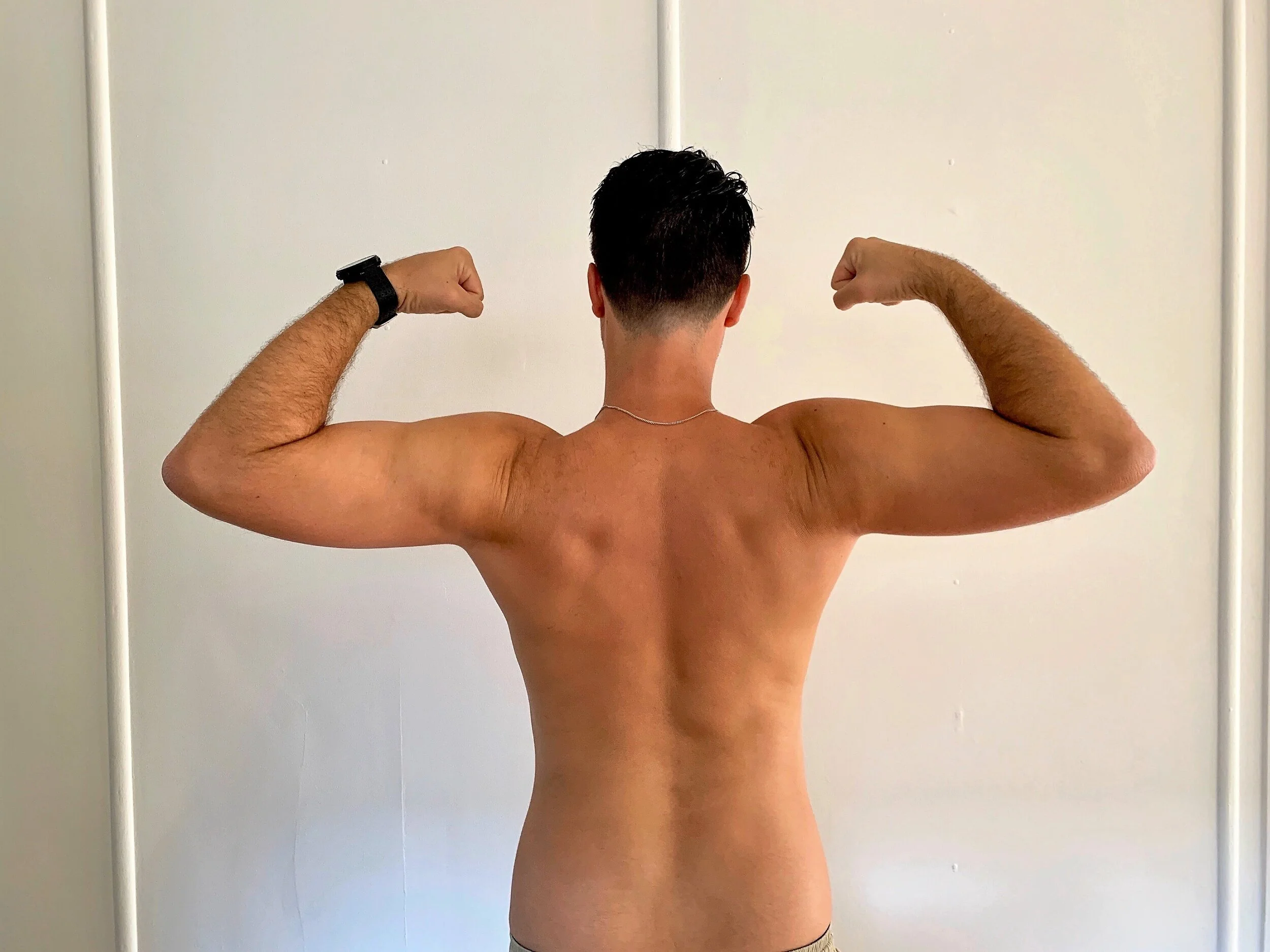Eating for lean body mass
You’re wanting to gain body mass but, not just any sort of mass, lean muscle with minimal to no increase in body fat.
How can this be achieved?
Firstly, an appropriate training program that is designed specifically to meet your desired goals, with a focus towards resistance training and other forms of exercise as well.
Secondly, consistent eating of nutritious foods that provide your body with the nutrients it needs to support health and build muscle, focusing on protein and carbohydrates.
PLEASE NOTE
Muscle mass isn’t just influenced by training and nutrition but also genetics as well.
So, it’s important to remember that your nutrition is unique to you and cannot be compared to that of any other person.
This includes the types of foods you choose to eat, the amount, the rate at which muscle mass is acheived (give it time!) and simply the varying nutrition goals that each person has.
PROTEIN
Muscle is made of protein and so it makes sense that protein is needed to support and replenish already existing muscle, and also additional protein for making new muscle.
“How much should I be eating?”
Amount is important as you’re going to need to increase your intake from what you would typically consume in a day, but also timing and consistency.
Focus on including some protein food sources with each meal and snack you eat, i.e. breakfast, morning tea, lunch, afternoon tea, dinner and maybe even supper - easy!
By doing this, you’re evenly distributing the amount of protein you eat across the day which is important.
Research shows that protein distribution is more effective in building muscle compared with eating large amounts of protein in one sitting, e.g. an entire roast chicken for dinner - humous intended.
Since consistent and even distribution of protein throughout the day is now established, this means no skipping meals and snacks.
Consider your schedule (e.g. unversity, work, training, etc.) and plan appropriately.
Planning and preparation will be key to your success.
ENERGY
It’s also equally important that you increase your daily energy intake, consumed in the form of quality carbohydrates and fats.
If gaining body fat is of concern, then increase your daily energy intake by small amounts and choose nutritious carbohydrate food sources, e.g. whole grains, dairy products, fruit, nuts and seeds.
The same principle applies as with protein, where you want to time and evenly distribute foods with each meal and snack but, in this case, with high energy foods.
Depending on when training is, additional snacks may be required if there is a long break between exercise and eating occasions, i.e. before and after training.
Again, don’t skip meals and snacks, and so planning and preparation is key.
SUPPLEMENTS
Supplements are individual.
For some people they will be appropriate and for others they won’t be.
At times they can be a matter of convenience, giving you the necessary protein if you haven’t had time to prepare food, e.g. a snack for after training.
However, aim to optimise nutrition first and supplements second.
If your nutrition isn’t on track then research shows that supplements are going to have minimal effect.
Consult a sports dietitian if you are considering supplement use of any kind to navigate what is appropriate and safe.

